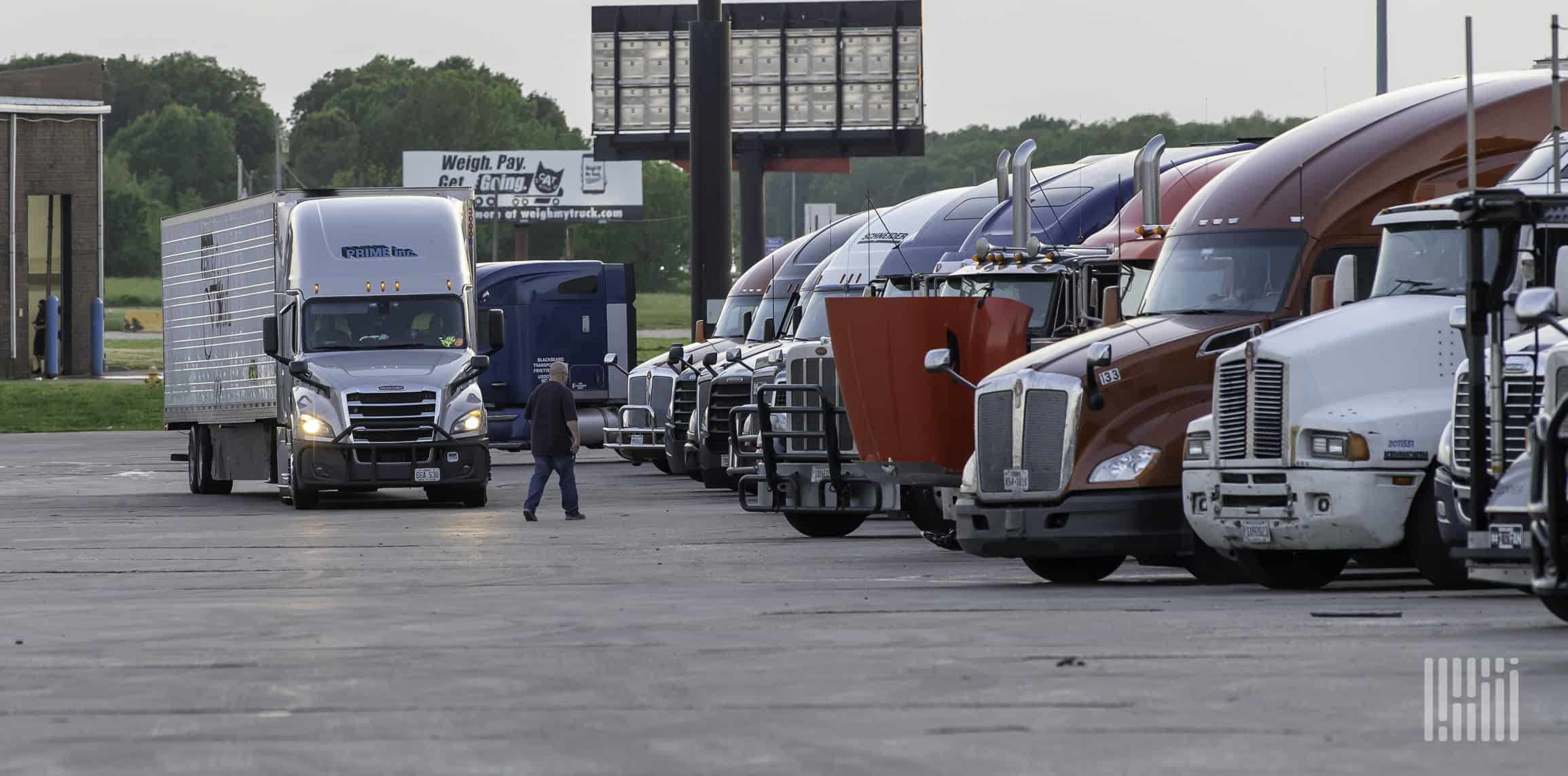There are a few key differences between owner-operators and company drivers. As a company driver, you leave work behind when you exit the truck at the terminal. However, an owner-operator has to take care of his truck, even after hours.
The owner-operator has the perks of choosing his jobs and when to take time off but is solely responsible for his truck and equipment.
As a company driver, the company will look after the truck, but you’ll probably end up sharing a truck. This means the equipment and the settings could differ from your standards. Also, the truck might not always be clean.
Where the best truck drivers go to find jobs nationwide!
What Is an Owner-Operator?
An owner-operator is a truck driver who owns his or her own truck. This essentially means that owner-operators are independent workers with the freedom to pick the jobs and the loads they accept. They also don’t have to deal with forced dispatch as often.
You can potentially earn more money as an owner-operator, too. You can also set up your truck the way you want. This means your truck is more likely to meet your standards as well. However, since you are responsible for your truck, any expenses or damages you incur are also yours to pay for.
You also have to deal with maintenance in your time. In today’s climate, where there’s a shortage of drivers, owner-operators fare quite well, but they are dependent on carrier companies to get jobs.
What Is a Company Driver?
A company driver is a truck driver who works for a company as an employee and operates a company-owned truck. As a company driver, you generally have less freedom, you don’t get to pick your own jobs, and you have less time off. Your pay might also be lower than that of an owner-operator.
However, if the truck needs maintenance at the end of the day, it’s on company time and cost. You leave your worries behind after you exit your truck at the terminal. If you live far from the terminal you might have extra costs commuting to work.
The company you work for decides your routes, which might not always work in your favor. Working as a company driver also means that you’ll most likely be sharing a truck with other drivers. This means the truck might not be in the same condition you left it last time.
Comparing Owner-Operator & Company Driver
So, which is better, becoming an owner-operator or working as a company driver? Depending on what you’re looking for, one might fit you better than the other.
Start-Up Costs
As a company driver, your start-up costs are mainly your CDL Class A license. However, companies will often offer tuition reimbursement so you can get some of your investment back.
A lot of companies also provide paid training to drivers new to trucking. But as an owner-operator, you’ll have the added cost of your truck and any equipment it requires as well.
Job Security
As a company driver, your carrier company will want you out on the road as much as possible. Trucks that are not moving are not earning the company any money. Generally, you will have less time off and be on the road more.
As an owner-operator, you get to be a bit pickier with the jobs you accept. However, you are still dependent on your contracted company to supply you with those jobs. So if they don’t have enough jobs for you, this will affect your income.
Ownership and Responsibility
The company takes care of most things such as insurance, loads, trucks, and any maintenance required for company drivers. For company drivers, you clock out at the end of the day, and the job is done.
For owner-operators, there’s a lot more to consider. They buy their own truck, and they are responsible for the equipment, their insurance, and their truck’s maintenance. Owner-operators are basically independent contractors that can decide how they run their business.
Owner-operators accept responsibilities that carrier companies typically cover for company drivers. These responsibilities include keeping copies of your receipts, maintenance records, profits and loss statements, tax statements, insurance, and warranty documents. You must save these records for three years.
Compensation
Truck drivers have two common ways of getting paid. They are either paid by the mile or via a percentage of the load. As a company driver, you will most likely get paid by the mile, although some companies now offer percentage pay.
However, the rate per mile or percentage is lower than if you were an owner-operator. Owner-operators will earn more money per mile and generally get paid around 70% of the load’s value.
But this increase in earnings is usually offset because they have to cover their expenses such as fuel, maintenance, and insurance. Nevertheless, for a well-seasoned truck driver, being an owner-operator can significantly increase your earnings.
In contrast, inexperienced drivers will likely have higher expenses and therefore be better off as company drivers.
Equipment Preferences
As a company driver, you are supplied with a company truck and trailer and other equipment that they deem necessary. You don’t have a say in it, and you can’t change much about it.
However, you also don’t have to pay for equipment. Additionally, other people will be driving the same truck, meaning your seat and driver settings might differ every time you get in the vehicle.
As an owner-operator, you buy your truck. You get to choose how your truck is equipped. You purchase or lease a trailer that you think is the best for the job. You get to make business decisions.
You and you alone will ride your truck, so everything will always be set up to your preferences. But you are responsible for all of it, the upfront cost, any damages incurred. So being an owner-operator gives you more freedom and comfort, but it comes with more financial risk.
Flexibility
As a company driver, you don’t have much in terms of flexibility. You can let your carrier company know your preferences, but that doesn’t mean they will comply.
If you are sent on a route with a lot of traffic, there’s not much you can do even though you hate traffic. The company decides where you go. That’s why it’s imperative to choose the right company for you.
As an owner-operator, you can accept and decline contracts. You get to schedule your own time and pick the arrangements that work for you.
So, not only do you have the freedom to work more or take more time off, but you also get to customize your truck to your liking. Owner-operators can customize their trucks with speakers, a mini-fridge, seat covers, and whatever else they think they need. Your truck is your second home after all!
Become an Owner-Operator Today!
Are you just getting started in the trucking industry? Then you’re probably better off getting a job as a company driver. This can save you from some of the pitfalls that come with being an owner-operator.
However, if you have a lot of experience, love responsibilities and challenges, and prefer to have more freedom, you should look into becoming an owner-operator. If you are a safe driver and maintain your equipment well, you can earn a lot more as an owner-operator. You also can take time off whenever you need it.
For the best jobs in the trucking industry, be sure to check out TruckDrivingJobs.com. Qualified owner-operators with a Class A CDL are especially needed. However, all experienced Class A drivers should apply today!
FAQs
As an owner-operator, you can pay yourself a salary through your company or you can pay yourself in dividends.
An owner-operator who manages his business well can earn between $2,000 to $5,000 per week.
The average annual pay for company truck drivers in the U.S. is approximately $55,000.



